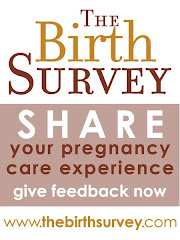The MA ACOG letter contains a number of completely inaccurate statements, especially regarding the CPM credential. The North American Registry of Midwives has addressed these points specifically, as follows:
The MA ACOG letter states:
“The academic standards for certified professional midwifery (CPM) are remarkably lower than the academic standards for training and certification of physicians, as well as for nurse-midwives certified by the ACNM. Moreover, CPM training requirements fall short of internationally established standards for midwives and traditional
birth attendants.”
NARM states:
Certified Professional Midwives are neither physicians nor nurse-midwives. Their education is specific to risk assessment and management for normal births in out-of-hospital settings. They recognize and refer, but do not diagnose nor treat, pathologies best suited for physician management. The education of the CPM is sufficient for this task as evidenced by the outcomes of the CPM2000 study published in the British Medical Journal, and as evidenced by the acceptance of the CPM by many states that license direct-entry midwives. Twenty-two states license midwives with requirements similar to or equivalent to the CPM; many have been in existence for over 20 years, and all have found the training to be sufficient for the task.
The MA ACOG letter states:
“An individual without a high school degree could be licensed as a CPM if he or she passed the certifying exam, observed 20 deliveries, and participated as the primary attendant in 10.”
NARM states:
Because the CPM is a midwifery credential, it does not set pre-requisites for non-midwifery education. The curriculum and training have been determined by the NARM Job Analysis according to procedures established by the National Commission for Certifying Agencies. The numbers in the above paragraph are false. In addition to the didactic education of over 750 competencies, the CPM candidate must complete 20 births as an assistant (not observer) and 20 births as the primary attendant, all under the supervision of a qualified preceptor. Additional verification of skills and knowledge is verified by a hands-on practical exam and an 8-hour written exam.
The MA ACOG letter states:
“CPMs have not adopted a set of criteria based on generally accepted medical evidence or public safety for patients who may be appropriate candidates for home birth, relying instead on the decision of the individual midwife and patient.”
NARM states:
Certification, by definition, defines the knowledge and skills necessary for attainment of the credential - indicating that the midwife has demonstrated the ability to make appropriate decisions for the practice of midwifery. The North American Registry of Midwives (NARM), which issues the credential, does have a mechanism for addressing complaints about the practice of a CPM. NARM does not, however, regulate the practice of midwifery. Regulation is a function of state licensure, and varies from state to state.
The MA ACOG letter states:
“The curriculum, clinical skills training, and experiences
of CPMs have not been approved by any authority recognized in certifying knowledge and skills associated with the practice of obstetrics, including the American Board of Obstetrics and
Gynecology, the American Midwifery Certification Board (AMCB), and the American Board of Family Medicine.”
NARM states:
Neither the American Board of Obstetrics and Gynecology nor the American Midwifery Certification Board approves the curriculum or sets clinical requirements for their own certificants, much less for the applicants for any other certification program. Each certification program sets its own prerequisites and conditions for application without approval from a completing or complementary certification board.
The MA ACOG letter states:
“The North American Registry of Midwives™ Portfolio Evaluation Process (PEP) requires midwives to be the primary care provider on 50 homebirths and have three years of experience. The average intern in obstetrics and gynecology gets this much experience
in 1 month.”
NARM states:
The Certified Professional Midwife does not function as an obstetrician/gynecologist. The clinical training for the CPM is similar in number to that of most certified nurse-midwives and is more extensive in vaginal births than the number required for family practice physicians.
MA ACOG could have easily checked their information before posting, but chose instead to post opinion and innuendo as if it were fact…
It is also interesting to note that the letter mentions no health evidence to support the ACOG position, and does not address the needs or preferences of mothers…
NARM’s “Planning for Legislation Handbook” includes lots of info, including factual information (p. 30) similar to the information above addressing the MA ACOG letter, and can be found here.
Sincerely,
Susan Hodges, “gatekeeper”






No comments:
Post a Comment